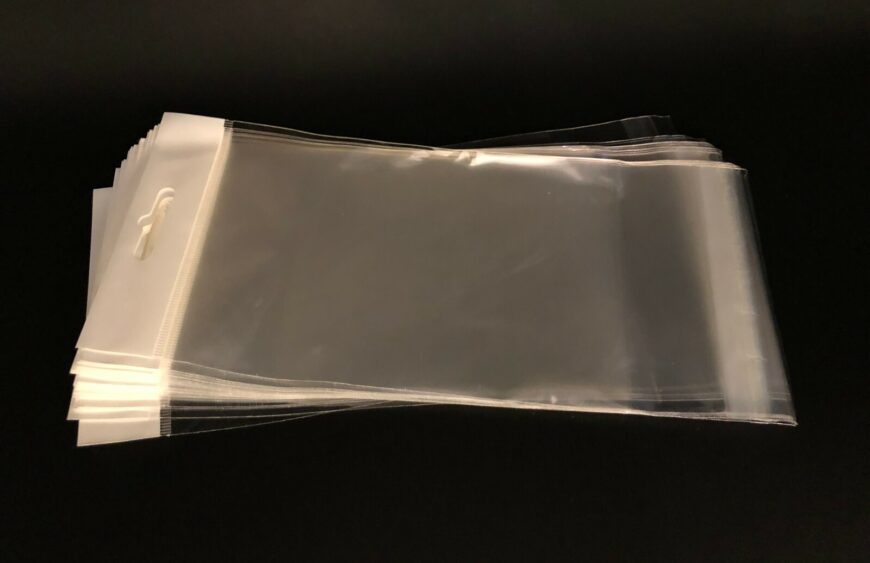Plastic pollution is one of the most urgent environmental challenges today, filling landfills, harming wildlife, and polluting our oceans. As more people become aware of the damage caused by traditional plastics, the demand for greener packaging solutions is steadily rising.
This is where eco-friendly poly bags canada offer an innovative and sustainable alternative. They provide the same protection and convenience as conventional plastic bags but with a significantly lower environmental impact. Whether you are a committed eco-warrior or just beginning to explore sustainable choices, this guide will help you understand the benefits, uses, and options available for a cleaner and greener future.
What Are Poly Bags?
Poly bags, also known as polyethylene bags, are among the most widely used packaging solutions across various industries. Made from either LDPE (Low-Density Polyethylene) or HDPE (High-Density Polyethylene), these bags are known for their strength, flexibility, and lightweight design. LDPE bags are soft and flexible, ideal for packaging food items, bakery goods, and takeaway meals. HDPE bags are more rigid and durable, often used for carrying bulk supplies or heavier products.
Poly bags are especially popular in the restaurant, hotel, café, catering, and food service sectors. They are commonly used for storing ingredients, portioning meals, packaging to-go orders, and keeping items fresh and protected from moisture and contaminants. Their clear appearance allows for easy identification of contents, which helps with organization and quality control in busy kitchens or service lines. Whether it’s packaging sauces, sandwiches, baked goods, or cutlery, these bags offer practical, hygienic, and cost-effective solutions.
With a wide range of sizes and sealing options like zip locks and heat seals, poly bags are highly versatile.
However, with growing environmental awareness, many in the food and hospitality industry are now turning to eco-friendly poly bags that offer the same performance with less environmental impact. These sustainable options enable businesses to reduce waste while maintaining high standards of food safety and presentation.
Benefits of Poly Bags
Poly bags offer a practical and efficient packaging solution for various industries, particularly in the food service and retail sectors. They combine convenience, cost-effectiveness, and product protection in a single, straightforward format.
Versatility and Convenience
One of the key reasons poly bags remain a top packaging choice is their unmatched versatility. Their lightweight nature makes them easy to handle and store, particularly in fast-paced environments such as restaurants, cafés, catering services, and retail establishments. Their transparent design enables quick product identification, which is particularly useful for inventory checks, order accuracy, and overall organization.
Many poly bags are resealable or available with various closure options, helping to preserve freshness and prevent contamination —an essential feature for food businesses and hospitality services. They also occupy minimal storage space, which is a significant advantage in small commercial kitchens or supply rooms where space is limited. Additionally, poly bags provide excellent protection against dust, moisture, and grease, helping to maintain product integrity from the kitchen to the customer.
Cost and Efficiency
Poly bags are also a cost-effective packaging solution. They are affordable to produce and purchase in bulk, making them an economical choice for businesses that require large volumes of packaging. Their lightweight material reduces shipping costs and contributes to a lower overall carbon footprint during transportation.
Uses of Eco-Friendly Poly Bags
Eco-friendly poly bags offer the same versatility as traditional plastic bags but with a much lower environmental impact. From food services to retail and logistics, they are becoming a preferred packaging option for businesses looking to reduce waste without compromising on quality or function.
Food & Hospitality Industry
Restaurants, cafés, catering services, and hotels are increasingly adopting eco-friendly poly bags to package takeout meals and store ingredients, as well as portioned prepared food. These bags help maintain freshness and hygiene while aligning with growing customer expectations for sustainable practices.
Retail Packaging
Eco-friendly poly bags are used to package apparel, accessories, stationery, and other consumer goods. Their transparency makes it easy to showcase products while protecting them from dust, handling, or environmental exposure during storage and transit.
E-commerce & Shipping
Sustainable poly mailers and packing bags are ideal for online stores seeking to minimize plastic waste. They offer strength and durability for shipping items safely while also sending a positive message to eco-conscious customers.
Industrial & Warehouse Use
In industrial settings, recycled or biodegradable poly bags are used to organize, store, and protect tools, components, and raw materials. They help reduce the environmental footprint of operations without sacrificing practicality.
Compost & Waste Management
Biodegradable and compostable poly bags are widely used for collecting food scraps or organic waste, especially in commercial kitchens and homes that practice composting. These bags break down in composting environments, supporting a circular waste system.
Promotional & Event Packaging
Eco-friendly poly bags can also be customized for branding and used at trade shows, events, or pop-up shops. Businesses can demonstrate their commitment to sustainability while offering functional, branded packaging.
Sustainable Choices: Eco‑Friendly Poly Bag Alternatives
As environmental awareness grows, more businesses are shifting to eco-conscious packaging that aligns with sustainable values. Fortunately, there are several alternatives to traditional poly bags that offer similar performance with a lower environmental footprint. These eco-friendly options help reduce plastic waste, support recycling efforts, and often come from renewable or recycled sources.
Recycled Poly Bags
Made from post-consumer or post-industrial plastic waste, recycled poly bags reduce the demand for virgin plastic and divert materials from landfills. They offer the same strength and clarity as conventional bags and can often be recycled again, supporting a circular economy.
Biodegradable Poly Bags
These bags are designed to break down over time through natural processes, especially in oxygen-rich environments. They contain additives that accelerate degradation, turning the material into smaller, non-toxic particles. However, it’s essential to verify that they meet standards such as ASTM D6954 to ensure actual biodegradability.
Compostable Poly Bags
Compostable bags are typically made from plant-based materials such as cornstarch, PLA (polylactic acid), or PBAT. They break down completely in industrial composting facilities into water, carbon dioxide, and biomass, leaving no toxic residue. Certified compostable bags must meet standards such as ASTM D6400 or EN 13432.
Plant-Based Poly Bags (Green PE)
Made from renewable resources like sugarcane ethanol, plant-based poly bags reduce dependence on fossil fuels. They look and feel like traditional plastic but have a smaller carbon footprint. Some are even recyclable within standard PE recycling streams.
Water-Soluble Bags (PVA Bags)
These are made from polyvinyl alcohol (PVA), a material that dissolves completely in water. They are ideal for applications where hygiene and waste reduction are essential, such as laundry, medical packaging, or small-dose deliveries.
Oxo-Degradable Poly Bags
Oxo-degradable bags contain additives that cause them to fragment under UV light and oxygen exposure. However, these are controversial, as they do not fully biodegrade and can contribute to microplastic pollution. They are being phased out in many regions in favour of truly compostable options.
Paper-Based Poly Bag Alternatives
For certain dry or lightweight goods, recyclable kraft paper bags with barrier linings can serve as an alternative to plastic poly bags. Though not suitable for all applications, they are fully compostable and widely accepted in recycling systems.
Choose Smarter Packaging with Planetize: Eco-Friendly Options That Deliver
At Planetize Packaging, we offer sustainable poly bag solutions designed for today’s eco-conscious businesses. Our range includes recycled, biodegradable, compostable, and plant-based poly bags that help reduce environmental impact while maintaining strength and clarity. Ideal for food service, retail, and shipping, our bags also support custom printing to elevate your brand. We provide fast and reliable service with free next-day delivery in Toronto on orders over CA$150. Make the shift to packaging that aligns with your values and supports the planet. Choose Planetize for innovative, sustainable packaging that delivers exceptional performance.
FAQs
What are compostable bags used for?
Compostable bags are used to collect organic waste, such as food scraps and yard trimmings. They’re popular in homes, restaurants, and commercial kitchens where composting is practiced, and they break down naturally in composting environments without leaving toxic residue.
What are the five benefits of reusable bags?
Reusable bags reduce plastic waste, are more durable, save money over time, support eco-friendly habits, and are available in sustainable materials. They’re practical for everyday shopping use and help promote a cleaner environment.
What is the difference between sustainable and eco-friendly?
Eco-friendly means something is not harmful to the environment. Sustainability extends beyond short-term considerations by focusing on long-term impact, balancing environmental, social, and economic factors to preserve resources for future generations.








